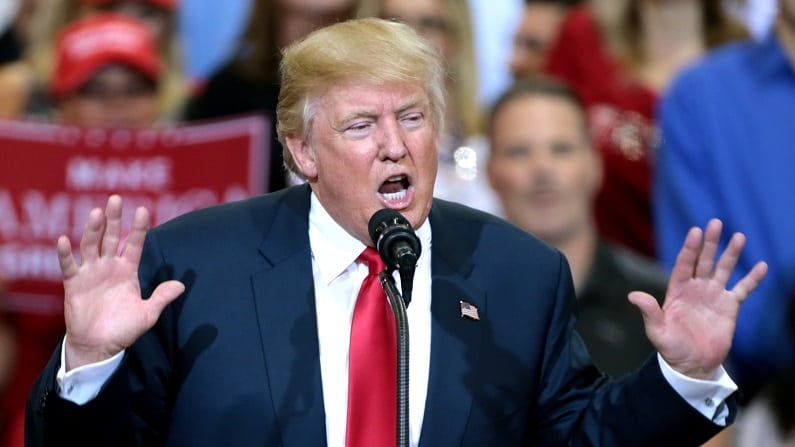The FTSE has bounced around in morning trading as it tries to digest the uncertainty hanging over the US election, where Joe Biden’s “blue wave” has failed to materialise and the winner of the presidency is set to come down to Rust Belt swing states, where Donald Trump appears to be outperforming polls.
Wisconsin, Michigan and Pennsylvania remain in the balance as Biden’s electoral college tally stands at 238 compared to Trump’s 213. A tight race in Georgia is also yet to be called, while Biden looks the favourite to win Nevada.
Trump has also signalled he will contest a Biden win, falsely claiming he had won the election and stating his intention to get the US Supreme Court involved.
The FTSE 100 opened down four points before regaining ground as sterling fell 1.1% against the safe-haven dollar to $1.2915. At midday, the index was trading slightly up at 5,802.85.
US equity markets look to be pricing out expansionary fiscal stimulus and lowering the potential for regulatory and tax changes, said Janus Henderson multi-asset manager Oliver Blackbourn.
“While S&P 500 futures have gyrated in a range of over 3%, domestically sensitive Russell 2000 futures are firmly lower and Nasdaq 100 futures higher, as lower real bond yields are positive for the valuations of the disruptor stocks which dominate this tech-heavy index.”
The reduced probability of a strongly reflationary fiscal stimulus saw US 10-year Treasury yields dip 14 basis points to 0.76%. Blackbourn noted: “A Republican Senate looks like a major headwind to very expansionary government spending given the tone of recent negotiations. Markets are clearly concerned about the potential for longer term growth as real yields are the biggest contributors to the moves lower.”
Kingswood chief investment officer Rupert Thompson described the market reaction as limited. “European and UK equities are currently now up a little, as are US futures. There has also been no rush into safe haven assets with gold, the dollar and US Treasury yields volatile but overall little changed from earlier in the week.”
Thompson reckoned markets were in for a choppy few weeks. “If the election does end up being contested, the risks are clearly to the downside although the relatively calm market reaction as yet suggests any decline may not be that great.”
But in the longer term he continues to see upside for equities as the virus is “slowly brought under control” in 2021.
Rathbones head of asset allocation research Ed Smith had been expecting a tight race going into polling day and therefore anticipated limited adjustments to portfolios as a result.
The asset manager’s strategies are positioned with relatively risk-off tilts, Smith said. “We’re broadly invested but still favouring lower beta, quality companies that don’t have sensitivity to any policy decisions that may result from the election one way or the other.”
See also: Richard Buxton: ‘Isolationism remains a powerful force among the US electorate’









